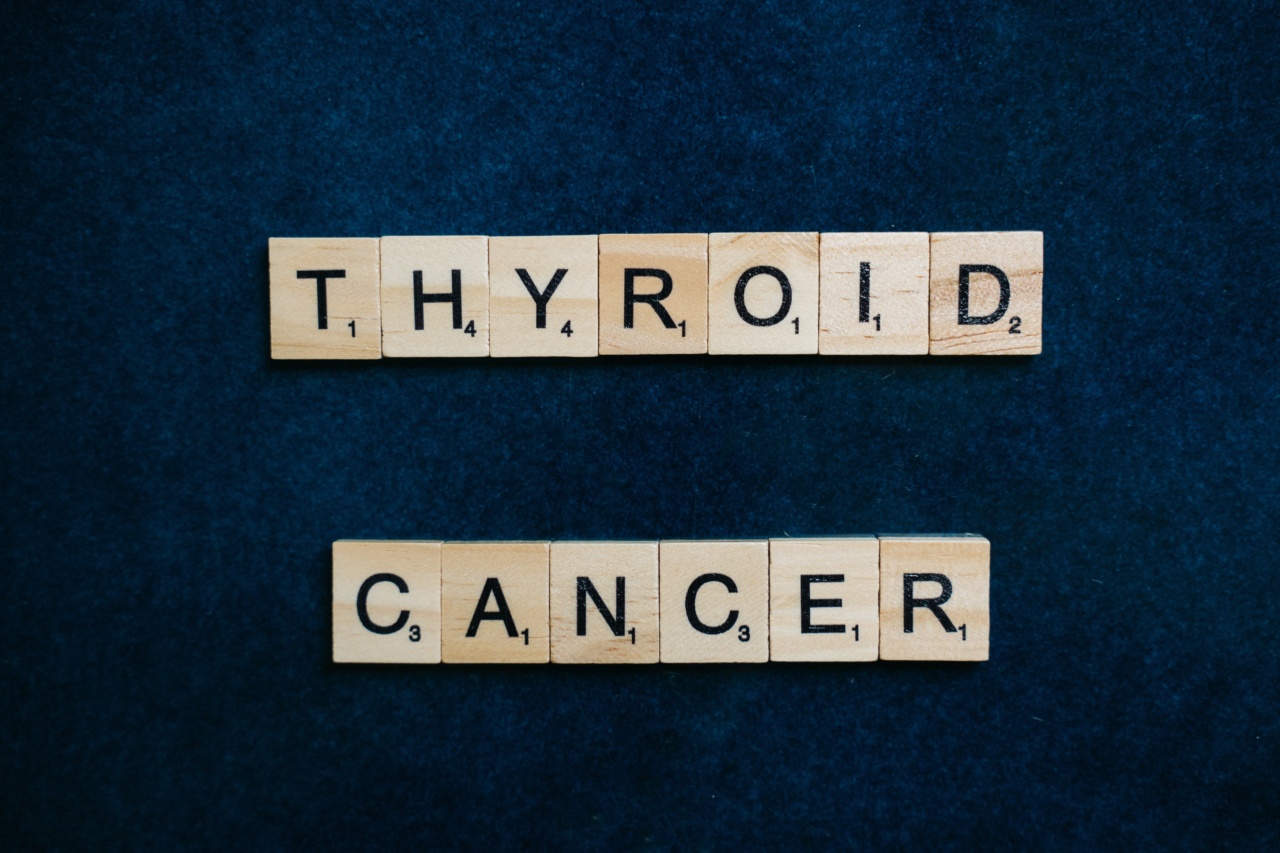Thyroid cancer is a common malignancy affecting the thyroid gland, which is located in the front of the neck. This type of cancer has a relatively high survival rate, especially when detected and treated early.
However, a significant concern for thyroid cancer patients is the possibility of relapse or recurrence of the disease.
The Importance of Relapse Prediction
Relapse prediction tests play a crucial role in identifying individuals who are at a higher risk of thyroid cancer relapse.
These tests help healthcare professionals tailor treatment plans and surveillance strategies according to the individual’s risk profile. By predicting the likelihood of relapse, these tests enable more personalized care and better management of the disease.
Types of Relapse Prediction Tests
There are several types of relapse prediction tests available for thyroid cancer patients. These tests analyze various factors and markers associated with the disease to determine the risk of relapse accurately. Some common tests include:.
1. Thyroid Stimulating Hormone (TSH) Level Monitoring
TSH level monitoring is a well-established method of assessing the risk of thyroid cancer relapse. TSH is a hormone produced by the pituitary gland that stimulates the thyroid gland.
Elevated levels of TSH indicate inadequate suppression of the thyroid gland, which may increase the risk of relapse in thyroid cancer patients.
2. Thyroid Cancer-Specific Genetic Mutations
Certain genetic mutations are commonly associated with thyroid cancer. Testing for these specific mutations can help determine the risk of relapse.
For example, the BRAF V600E mutation is prevalent in papillary thyroid carcinoma and is associated with a higher likelihood of disease recurrence.
3. Molecular Markers and Gene Expression
Molecular markers and gene expression profiling have emerged as promising tools for predicting thyroid cancer relapse. These tests analyze the patterns of gene expression to identify high-risk individuals.
By assessing the genetic signature of the tumor, molecular markers provide valuable insights into the potential for disease recurrence.
4. Imaging Techniques
Imaging techniques such as ultrasound, PET scans, and CT scans can aid in the prediction of relapse by detecting the presence of residual or recurrent cancer in the thyroid area.
These imaging tools help in identifying any suspicious or abnormal findings that may warrant further investigation or intervention.
Benefits of Relapse Prediction Tests
Relapse prediction tests offer several benefits to both healthcare providers and thyroid cancer patients:.
1. Individualized Treatment Plans
By accurately predicting the risk of relapse, healthcare providers can devise individualized treatment plans suited to the patient’s specific needs.
This personalized approach helps optimize treatment outcomes and minimize unnecessary interventions.
2. Enhanced Surveillance Strategies
Relapse prediction tests help healthcare providers determine the frequency and intensity of follow-up appointments and screenings. High-risk individuals can be monitored more closely, enabling timely detection and intervention in case of relapse.
3. Improved Patient Outcomes
By identifying individuals at a higher risk of relapse, these tests enable early detection and intervention. Timely treatment of recurrent thyroid cancer can lead to better patient outcomes and improved long-term survival rates.
Challenges and Limitations
While relapse prediction tests offer significant benefits, they also come with certain challenges and limitations:.
1. Cost and Accessibility
Some relapse prediction tests may be expensive, making them less accessible to all thyroid cancer patients. Limited insurance coverage for these tests can also pose financial barriers for individuals seeking more personalized care.
2. False Positives and False Negatives
Relapse prediction tests may occasionally yield false positive or false negative results. This can cause unnecessary anxiety for patients or lead to missed cases of relapse, respectively.
Close collaboration between healthcare providers and patients is essential to interpret test results accurately.
Future Directions
The field of relapse prediction for thyroid cancer is continually evolving. Ongoing research focuses on improving the accuracy of existing tests and developing novel techniques to assess the risk of relapse.
The integration of artificial intelligence and machine learning algorithms may further enhance the predictive power of these tests, leading to more effective management and improved outcomes for thyroid cancer patients.
Conclusion
Relapse prediction tests for thyroid cancer play a vital role in identifying individuals at a higher risk of disease recurrence.
These tests enable healthcare providers to personalize treatment plans and surveillance strategies, ultimately leading to improved outcomes for patients. While challenges exist, ongoing advancements in this field continue to expand our understanding of thyroid cancer relapse and enhance the accuracy of predictive tests.






























